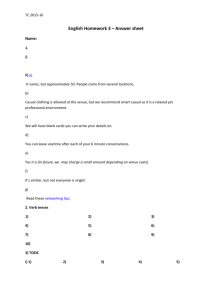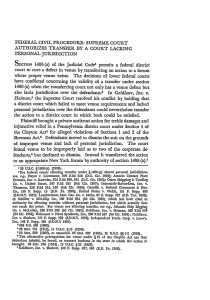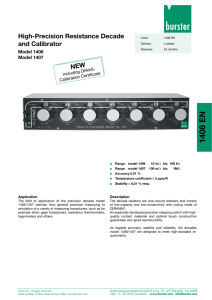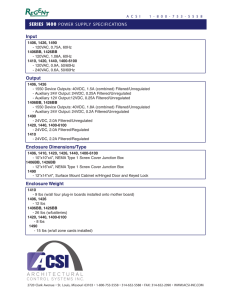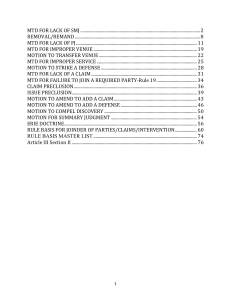1. C – 2. C 3. A
advertisement
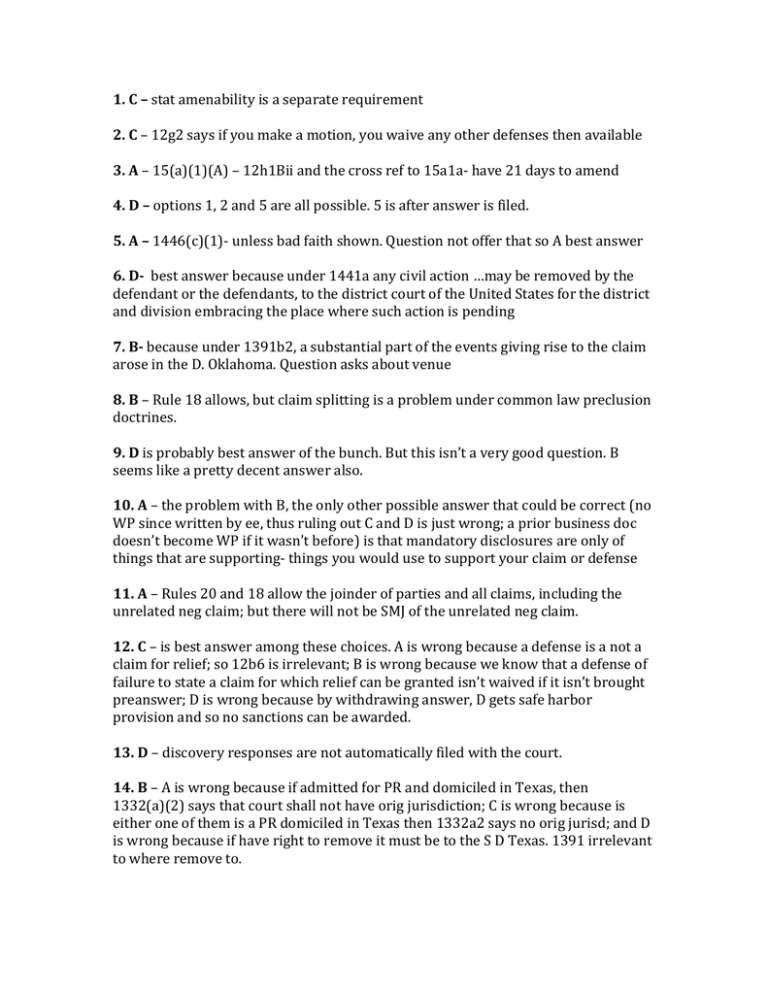
1. C – stat amenability is a separate requirement 2. C – 12g2 says if you make a motion, you waive any other defenses then available 3. A – 15(a)(1)(A) – 12h1Bii and the cross ref to 15a1a- have 21 days to amend 4. D – options 1, 2 and 5 are all possible. 5 is after answer is filed. 5. A – 1446(c)(1)- unless bad faith shown. Question not offer that so A best answer 6. D- best answer because under 1441a any civil action …may be removed by the defendant or the defendants, to the district court of the United States for the district and division embracing the place where such action is pending 7. B- because under 1391b2, a substantial part of the events giving rise to the claim arose in the D. Oklahoma. Question asks about venue 8. B – Rule 18 allows, but claim splitting is a problem under common law preclusion doctrines. 9. D is probably best answer of the bunch. But this isn’t a very good question. B seems like a pretty decent answer also. 10. A – the problem with B, the only other possible answer that could be correct (no WP since written by ee, thus ruling out C and D is just wrong; a prior business doc doesn’t become WP if it wasn’t before) is that mandatory disclosures are only of things that are supporting- things you would use to support your claim or defense 11. A – Rules 20 and 18 allow the joinder of parties and all claims, including the unrelated neg claim; but there will not be SMJ of the unrelated neg claim. 12. C – is best answer among these choices. A is wrong because a defense is a not a claim for relief; so 12b6 is irrelevant; B is wrong because we know that a defense of failure to state a claim for which relief can be granted isn’t waived if it isn’t brought preanswer; D is wrong because by withdrawing answer, D gets safe harbor provision and so no sanctions can be awarded. 13. D – discovery responses are not automatically filed with the court. 14. B – A is wrong because if admitted for PR and domiciled in Texas, then 1332(a)(2) says that court shall not have orig jurisdiction; C is wrong because is either one of them is a PR domiciled in Texas then 1332a2 says no orig jurisd; and D is wrong because if have right to remove it must be to the S D Texas. 1391 irrelevant to where remove to. 15. E - A is wrong because “Must” doesn’t fit with discretionary nature of a 1404 transfer; B is wrong because whether there is PJ or not, venue is improper in any fed district in CA, so can’t use 1404; C is wrong for same reason A is wrong; D is wrong because under 1406 you don’t have discretion to retain the case. E is correct because venue isn’t proper in any fed district in CA and so, given that we have a defect in venue, 1406 comes into play. Under 1406, court could dismiss or transfer,
